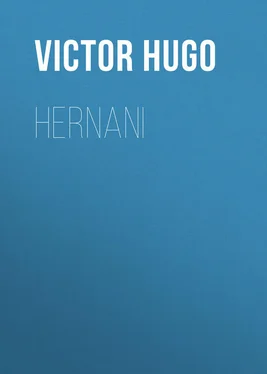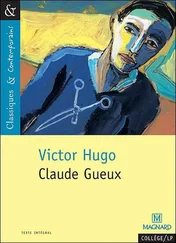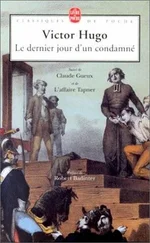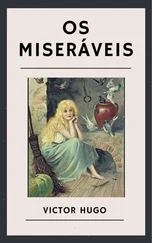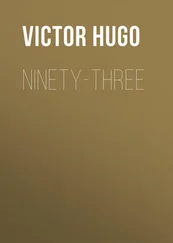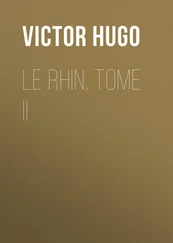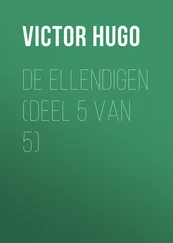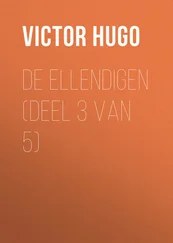Victor Hugo - Hernani
Здесь есть возможность читать онлайн «Victor Hugo - Hernani» — ознакомительный отрывок электронной книги совершенно бесплатно, а после прочтения отрывка купить полную версию. В некоторых случаях можно слушать аудио, скачать через торрент в формате fb2 и присутствует краткое содержание. Жанр: literature_19, foreign_antique, foreign_prose, на французском языке. Описание произведения, (предисловие) а так же отзывы посетителей доступны на портале библиотеки ЛибКат.
- Название:Hernani
- Автор:
- Жанр:
- Год:неизвестен
- ISBN:нет данных
- Рейтинг книги:3 / 5. Голосов: 1
-
Избранное:Добавить в избранное
- Отзывы:
-
Ваша оценка:
- 60
- 1
- 2
- 3
- 4
- 5
Hernani: краткое содержание, описание и аннотация
Предлагаем к чтению аннотацию, описание, краткое содержание или предисловие (зависит от того, что написал сам автор книги «Hernani»). Если вы не нашли необходимую информацию о книге — напишите в комментариях, мы постараемся отыскать её.
Hernani — читать онлайн ознакомительный отрывок
Ниже представлен текст книги, разбитый по страницам. Система сохранения места последней прочитанной страницы, позволяет с удобством читать онлайн бесплатно книгу «Hernani», без необходимости каждый раз заново искать на чём Вы остановились. Поставьте закладку, и сможете в любой момент перейти на страницу, на которой закончили чтение.
Интервал:
Закладка:
I do not mean to imply that Victor Hugo would not have emancipated himself from the thraldom of Racine had he never read our Shakespeare. He would doubtless have felt cramped, and have sought room for expansion. He would doubtless have done what he did do, in one respect, and that is, have turned to mediaeval and later European history for the inspiration of novels such as «Notre Dame de Paris», of plays like «Hernani» and «Ruy Blas», and of a number of his lyrics. The Germans had already set him an example in the matter of utilizing folklore and the mediaeval epics and mediaeval history. The brothers Grimm, those quiet, indefatigable giants, had opened up in Germany a wonderful mine, not only for philological research, but of poetical inspiration. Since the days when Goethe helped himself so nobly in the old German storehouse, drawing thence his best dramatic product, from «Götz von Berlichingen» to «Faust»; and Schiller even more abundantly, – since the days of these great men no German poet except Richard Wagner has availed himself of these riches to make a really great art-work, such as Tennyson has done with the Arthurian romances and William Morris with the Norse sagas.
We have seen that the conservative reaction, represented by Chateaubriand, Lamartine, Lamennais, and Hugo, lasted from 1815 to 1830, and that the new spirit, of Romanticism, which had been working all along, finally became dominant then. The political revolution of 1830, often called the Revolution of July, had dethroned Charles X, and brought in, with a more liberal constitution, Louis Philippe, a prince of the house of Orleans. This event proved to be a great stimulus to literary activity and a guarantee of literary freedom. It went far towards destroying the expectation of reviving a state of society and a tone of thought modelled after seventeenth-century life. It weakened the monarchical tendency altogether, for it divided the hopes of conservatives and proved that the Bourbons were not the only possible kings of France, but that many monarchists would take a king wherever they could get him. As is usual, and not in politics merely, but in all combinations of human effort where supremacy must be maintained by compromise, the unsuccessful minority, the hungry opposition, was freer from division, more single in aim, and purer in method, than the party in power. There is sometimes no party tonic like defeat, and nothing is so recuperative as retirement for a season. So then after fifteen years of invigorating rest, the republican party was more capable in 1830 than in 1815 of inspiring the enthusiasm of men who desired well for their country. It had been so far purified that a young poet like Hugo might be attracted towards it as to the saving remnant of his people. His drift in the direction of republicanism was hastened by the fact that his next two dramas, «Marion De Lorme», 1831, and «Le Roi s'amuse», 1832, were kept from being performed by ministerial order, because they displayed two revered kings of France, Louis XIII and Francis I as the shallow, pleasure-loving men they were.
A new era for French literature began in 1830. We are justified in saying this, because the great names of the former decade had lost their brilliancy, and another set of writers began to be celebrated and to be looked upon as establishing the tone of thought. The character of the product, too, is different. There was a larger freedom in the choice and treatment of subjects, the literatures of England and Germany were being studied and translated. For the first time, also, was there in France any widespread appreciation of Dante. The fact I wish to establish is merely that the spirit had completely changed, and no argument beyond the evidence of our senses is necessary.
Pursuing still our old method of investigation, if we want to know what the new spirit was, we must first inquire who were the prominent men that breathed it, and then possibly attempt a definition. As Chateaubriand, Lamartine, and Lamennais set the tone in 1815, so Hugo with his friends and others of the same free spirit did in 1830. About this powerful, enthusiastic man and his cultivated young wife, in their simple home, there gathered a number of literary men and women, who were called the cenacle or symposium. They, with other persons whom their influence touched, had a common tendency, which in the case of some was clearly enough defined to be called a common conscious purpose. The German poet Heine was living in Paris at that time, and we know very well what object he set before his eyes. Matthew Arnold, in his fine essay on Heinrich Heine, quotes the great singer's own words, and makes them the text of an illuminating criticism. They represent exactly the sentiment of Hugo and his friends at that time. Hear them: «I know not if I deserve that a laurel-wreath should one day be laid on my coffin. Poetry, dearly as I have loved it, has always been to me but a divine plaything. I have never attached any great value to poetical fame; and I trouble myself very little whether people praise my verses or blame them. But lay on my coffin a sword : for I was a brave soldier in the war of liberation of humanity.»
If you have read any of the so-called comédies et proverbes of Alfred de Musset, as «Fantasio» and «On ne badine pas avec l'amour», you must have felt how those short recitals of passion are breathed through and through with the spirit of revolt against conventional opinion; how high they stand above whatever is commonplace; how little they derive their pulsating interest from what is usual and accepted. You know how it is when you listen to an orator who employs false methods of exciting the emotions: how he drops his voice at the end of certain phrases; how he whines through certain cadences; how he tries his battery of anecdotes; how he grows warm at the conclusion, and sits down amid a hush and thrill, very likely, leaving in shallow minds the impression that he has made an effective appeal. Yet to the discriminating listener it is instantly apparent that he has been merely following the conventional method, and very possibly has not meant a word of what he said; and when a simpler, freer man gets up and talks sensibly and calmly you see wherein the vice of conventionality lies. It is in deceiving the performer himself and corrupting his power to judge himself or form a critical estimate of what he is doing. The result is that he fails to observe that he is doing nothing original. And so he goes on feeding us with husks of commonplace. Now, every generation demands, and would, if it were untrammelled by convention, produce, its own interpretation of the phenomena of life. The radicals of our fathers' time are conservatives for us, and we ourselves, however vigorous our protest against present oppressions, shall in our old age be considered so much detritus, to be got rid of by the hot young builders of that day. So the Romanticists of 1830, being soldiers in the war of liberation of humanity, were the deadly enemies of what is commonplace, of what is conventional; were radicals in politics, in religion, and in their aesthetics. One of the most interesting subjects for historical investigation is the development of aesthetic theories. And of all periods when art theories have undergone great changes, this period of 1830 in France is one of the most interesting.
They hoped, these brilliant enthusiasts, to bring about a new French Revolution, bloodless, of the spirit rather than of the form. Here are their names: Lamartine (for he had gone over to the Romanticists), Victor Hugo, Alfred de Musset, Beranger, Alfred de Vigny, Balzac, George Sand, Alexandre Dumas, Sainte-Beuve. You perceive that although the original revolt was against the dramatic fetters imposed by Racine and Boileau and Voltaire, the revolution had extended over the whole range of literature – against conventionality in criticism, in lyric poetry, in fiction; just as the revolt of the American colonies soon got far beyond the original grievance about the tax on tea. Their common tendency was protest against conventionality. They went too far under this impulse. Alfred de Musset, for instance, translated liberty into libertinism, and marred the innocent bloom of his art by the licentiousness of his life. Victor Hugo, the devout, God-fearing youth, became a sentimentalist and skeptic; a poet could not do worse, and the effect is seen in a marked diminution of creative force. He no longer possessed his old earnestness, and thus his work of this period fails to touch our hearts with fire. The self-consciousness of youth, instead of melting into that ever-present recognition of the Divine which is the true culture of a mature man, only stiffened into an odious self-conceit, which is Victor Hugo's ugliest blemish. George Sand advocated and practised free-love. Béranger, the Robert Burns of France (but not nearly so great a poet), overdid his office of convivial songster, and one pities him and dreads the effect of his influence. Dumas' private life was a long scandal, saved from ignominy only by the contrast between its ludicrousness and his genius. His lack of restraint affected his work too, for had he possessed more restraint he would have written fewer books, and they might all have been as good as «Les Trois Mousquetaires».
Читать дальшеИнтервал:
Закладка:
Похожие книги на «Hernani»
Представляем Вашему вниманию похожие книги на «Hernani» списком для выбора. Мы отобрали схожую по названию и смыслу литературу в надежде предоставить читателям больше вариантов отыскать новые, интересные, ещё непрочитанные произведения.
Обсуждение, отзывы о книге «Hernani» и просто собственные мнения читателей. Оставьте ваши комментарии, напишите, что Вы думаете о произведении, его смысле или главных героях. Укажите что конкретно понравилось, а что нет, и почему Вы так считаете.
